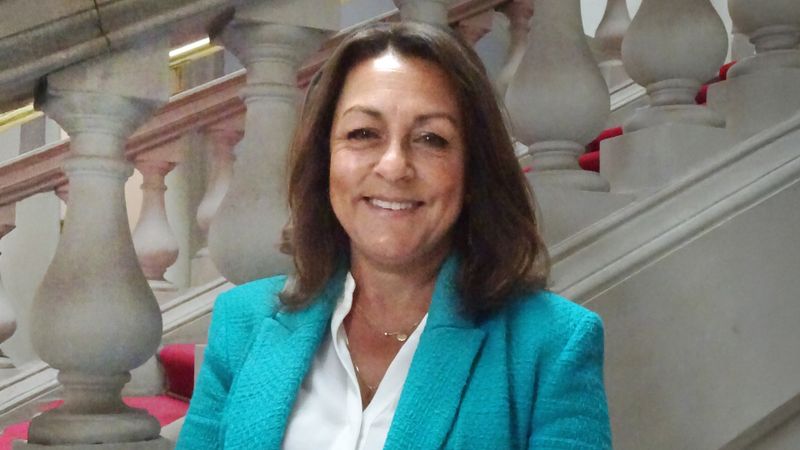A major step towards securing more decision-making powers in Kent and Medway was outlined in the English Devolution White Paper, with the Deputy Prime Minister, Angela Rayner, setting out plans for local government reorganisation and more elected mayors across England.
Devolution is a key policy of the government, central it says to kickstarting economic growth which will involve handing decision-making powers to local political leaders and providing millions of pounds to shape major policies and projects on a regional level.
At the moment, a large proportion of decisions about what happens in Kent and Medway are taken by the government and its departments. Instead, it wants to give areas more powers to make their own decisions on issues such as transport, skills and support for business.
The Leaders of Kent County Council, Medway Council and all 12 District and Borough Councils in the county submitted an expression of interest earlier this year to the Deputy Prime Minister, which set out how they are keen to work with government to shape an innovative and comprehensive devolution deal for Kent and Medway.

“The result does offer the chance for this county to regain the strategic powers and capacity that have been lost as a result of national policy choices and the impact of overstretched people services on our finances, our capacity, and our attention. But it will come with change.”
Roger Gough told Members that the timetable for devolution in Kent and Medway could now move forward at pace:
“The White Paper set out what was very clear to many of us following what the Local Government Minister, Jim McMahon, said to the LGA conference in October, that what are now called mayoral strategic authorities are the building blocks of a new settlement for government across England, and they will be universal.
“You can't opt out and there will be no orphan areas; a mayoral settlement is non-negotiable. But in recent weeks two things have changed at least in degree. Local government reorganisation for two tier areas has become a major feature of the plans.
“The result does offer the chance for this county to regain the strategic powers and capacity that have been lost as a result of national policy choices and the impact of overstretched people services on our finances, our capacity, and our attention. But it will come with change.
“We’re helped in the doing of this by having the clear geography of Kent and Medway. And critically we share those boundaries with major public services - Police, Fire, Health - which puts us in a very strong position, stronger than many other parts of the country, to bring public services closer together and deliver both better services and better value for the Kent pound.
“We also have the habits of partnership across a number of key areas through the Kent and Medway Economic Partnership, the Employment Task Force, our work on pathways for all in post 16 education and skills, and the Integrated Care Strategy. They give us a firm foundation for that future, and we’ve worked closely with Medway Council and with the 12 districts and boroughs of Kent to develop the Kent and Medway approach.
“The next stage is that government will set out early in the new year which areas belong to the priority devolution program. Those areas will have the opportunity to catch up with the devolution trailblazers such as Greater Manchester and the West Midlands within a few short years, as well as developing that public service reform agenda.
“The devil is in the detail of timings, of developing institutions and of addressing quite complex financial issues, but as a general principle, while making sure we get it right, it is in our interests to move sooner rather than later. We can present a coherent, in many ways simplified, structure to our residents, which delivers service and financial benefits, and put us more in charge of our own destiny in developing those institutions. That will, though, as I say, mean change, and none of the 14 councils across Kent and Medway, including this one, would be unaffected by it.
“This is the most important and potentially transformational issue facing this council in many years, and it is, on the government's own timetable not ours, coming at us very fast.”
The Ministry of Housing, Communities and Local Government (MHCLG) revealed yesterday (18 December) details of the provisional finance settlement for councils, confirming how much funding authorities are set to receive in 2025/26.
Under the provisional settlement - the amount the government gives councils each year - when taking into account all of the component grants, KCC receives around £30m more than last year.
Roger Gough told KCC Members: “We have seen some improvements in the position for Kent, between the budget, the policy statement and the settlement. But the reality is it still does not keep pace with the pressures that we face, some of them exacerbated by government decisions.
“So, on the positive side, we've seen an increase in what's allocated to social care up from £600 million to £880 million nationally. KCC's grant will be £20 million more compared to 2024/25. There is the children's social care prevention grant, worth some £6.2m to us, which we welcome along with some of the associated policy announcements.
“However, the allocation of funding through the £600 million pound recovery grant, of which none will come to this authority, is not in our view targeted on those areas of greatest spending pressures, and raises questions as to what the longer term approach will be to allocation of funding and what that may mean to us as a council.
“Our biggest concern, however, is in many ways about other government decisions, and their impact. In particular, the decisions in relation to the National Living Wage, the National Minimum Wage, and above all, the increase and reduction in thresholds in relation to Employers' National Insurance contributions. The impact of that on our providers, above all, and most immediately our social care providers is substantial.
“We will continue to work with the providers on that, because it represents a massive impact on a sector that is already under intense strain. And we believe it is wrong that those providers working to the requirements of the public sector are not given the same relief from those pressures.”
Further information
For more on devolution, visit: Devolution - Kent County Council




